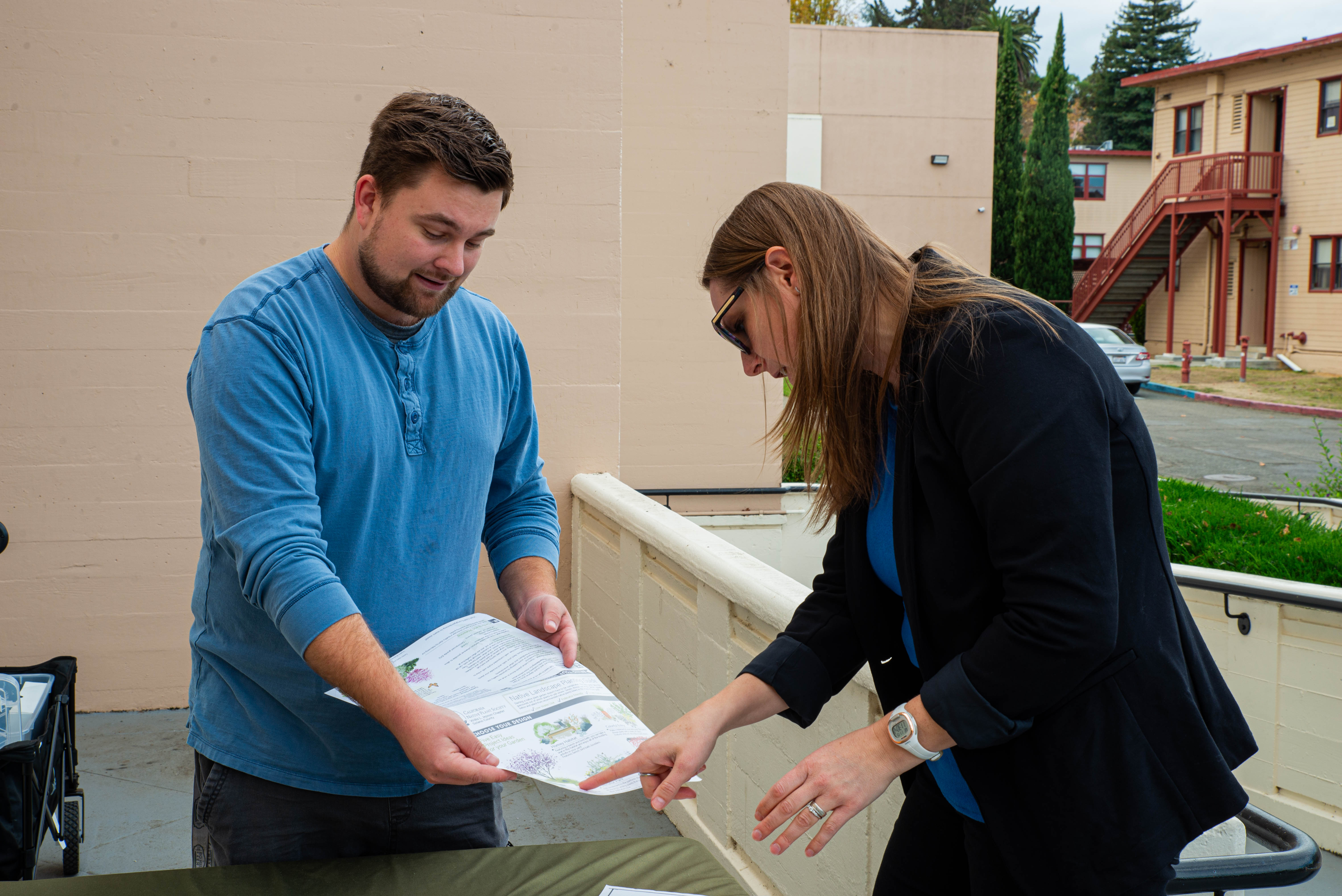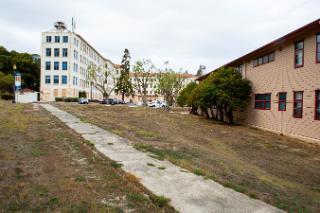Food Forest on Campus Takes Root
Touro University California embarks on an ambitious endeavor to transform a part of the campus landscape into a thriving hub of sustainability

As part of the Beautiful U initiative to improve the visual appeal of the Touro University California (TUC) campus, the Food Forest is a collaborative project with Sustainable Solano to develop a flat plot of land located behind the College of Pharmacy building (Administration & Faculty Building 2) into a verdant food oasis.
“We're thrilled that our campus can partner with Sustainable Solano, which is a local organization that's also housed on Mare Island,” says Sarah Passage, Chief of Staff for the Dean’s Office. “We're hoping to grow a mix of fruits and vegetables, with some pollinator plants as well to attract bees and butterflies to create a beautiful environment. We're thrilled for the opportunity to develop a pleasant and functional space for our campus.”

Currently scheduled for groundbreaking in January with planting and development of the land in February and March, the Food Forest will initially span 2,000 square feet of the total 6,000 square feet plot. Acknowledging the scarcity of outdoor spaces for relaxation and enjoyment, Passage envisions this area as a haven—a space where individuals can reconnect with nature, learn about sustainable practices, and reap the literal fruits of their labor. Tables and benches will be installed, allowing people to sit and enjoy the sights, sounds, and smells of the edible garden.
With a meticulous focus on community input, the project aims to reflect the collective desires and needs of those who will benefit from it. Sustainable Solano's Program Manager, Patrick Murphy, has been gathering ideas and feedback from students, faculty, and staff, ensuring that the garden design resonates with the community's expectations.
“Our general approach is that we collect everything from everybody, any idea at all, and then we sift through to see what's possible,” says Murphy, who says that they weed out the plants that simply won’t grow or thrive in the Mare Island climate, like mangos or sugarcane. “We try to incorporate companion plants, as many California natives as possible, and plants that help all the different types of pollinators like bees, bats, and all the others that fly around.”
Irrigation, conservation, and considerations for rain events are handled by creating bioswales, trenches near trees that are filled with wood pulp/chip material. They absorb rainwater and runoff and provide water for plants when the weather is drier.
Once the garden is established, it is up to TUC to keep everything growing and thriving. This will create opportunities for using the Food Forest as a therapeutic space, offering opportunities for gardening sessions, working to help the space and plants thrive, and potential student club engagement. It's not just about farming crops; it's about cultivating well-being, sustainability, and a sense of belonging within the TUC community.
“We’ll plant what we need, what we can hope to then share with our community,” says Passage. “The produce will go out either to our own food pantry, other efforts like the Student Run Free Clinic, or other places where we go out in the public.”
